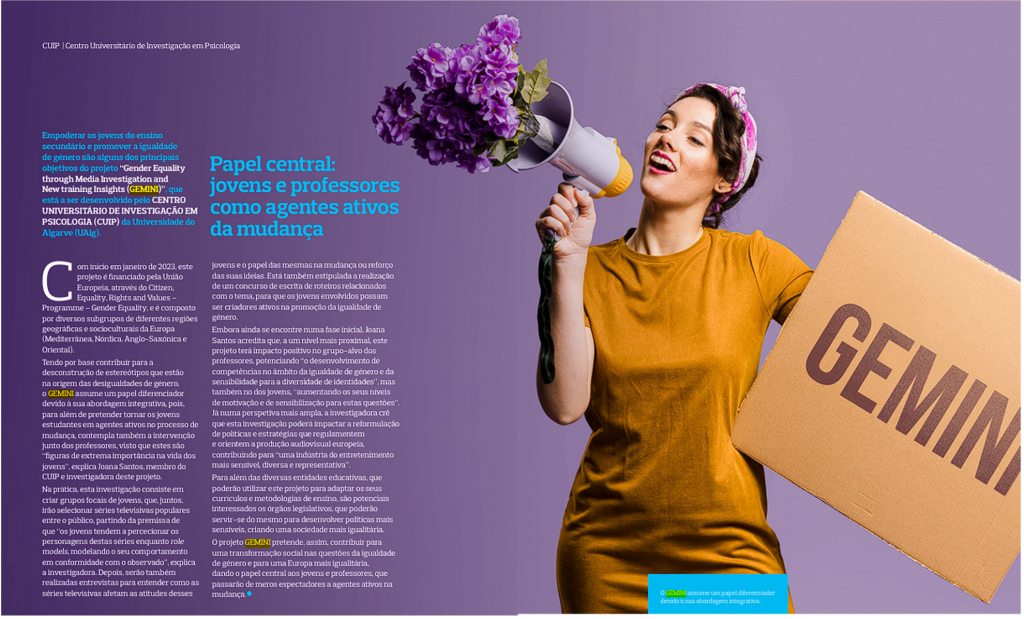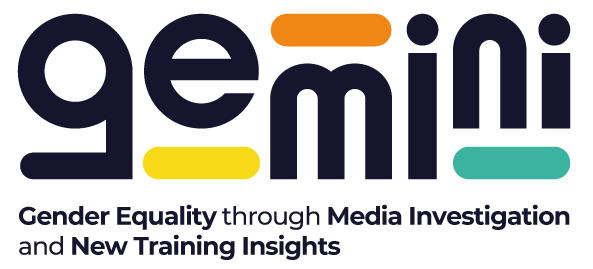Project GEMINI Stands Out at the Launch of UAlgzine’s 16th Edition
By Alexandre Condeças, 4 March 2024
UAlgzine is University of Algarve’s official magazine. It defines its main goal as “ensuring the diffusion of current information regarding the scientific, academic and cultural activity of the University of Algarve” (cf. the magazine website).
Endorsing the idea that science is the “force” driving societal progress and the impetus that allows us to understand where we’re going, this years’ edition was dedicated to the science research developed within the institution. As is the case every year, the magazine maintains a wide target demographic, opting for a varied, easy-to-understand approach to the topics it covers without sacrificing scientific rigor.
Thus, for the celebration of its launch, on January 31 an event occurred at the heart of Faro’s historic center. This event titled “Conversas com Ciência” (in English, “Science Talks”) welcomed researchers from the university from all walks of life – senior and junior researchers; Erasmus researchers; etc. – and from several scientific fields (e.g., archeology, tourism, psychology) representing many of the university’s research centers. Joining them were several media representatives and journalists from various local and national platforms.

In this line, the Director for UAlg’s University Center for Investigation in Psychology (CUIP) selected Project GEMINI to exemplify the research conducted in psychology, both for publication within UAlgzine and for the accompanying event. Professor Joana Santos, the project’s Team Leader at UALG, and Alexandre Condeças, a fellow member working alongside her, accompanied the Research Center’s Director during the occasion.
“Conversas com Ciência” represented a new approach to UAlgzine’s launch – a “Speed Dating” type of format. All research group teams were sat in their corresponding tables and, after a brief introduction from the university’s communication team and the Rector, the time was ticking. All invited journalists – a total of 11 – were instructed that they had 5 minutes to interview any given research group, after which they would switch to the next one.
GEMINI at the centre
During the session, several journalists approached Project GEMINI’s team. These brief contact moments allowed for a productive discussion surrounding the nature of the project, its main goals and approach, as well as broader societal repercussions. The multiple interviewers, each with their own idiosyncrasies, raised different yet complimentary questions prompting GEMINI’s team to speak about several aspects of the project in greater detail.

The main aspects which seemed to spike the interest of the journalists pertained to the Europe-wide collaboration effort, the utilization of serial dramas as the focus of the intervention, and the possibility of harnessing derived knowledge, procedures, and tools well beyond the project’s lifespan.
Adding to this, researchers and journalists exchanged contact information and intentions to collaborate under an increased degree of proximity, opening collaborative avenues. This is an important factor in ensuring GEMINI’s sustainability as it facilitates spread of word about, not only, its activities and findings but also the baseline needs which prompted the project’s creation and which need continued addressing.
UAlgzine’s 16th edition can be consulted online via its own website page. Magazine issues pertaining to UAlg’s University Center for Investigation in Psychology and to Project GEMINI can be consulted on pages 44 and 46-47, respectively.


